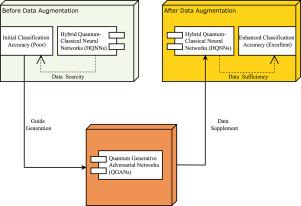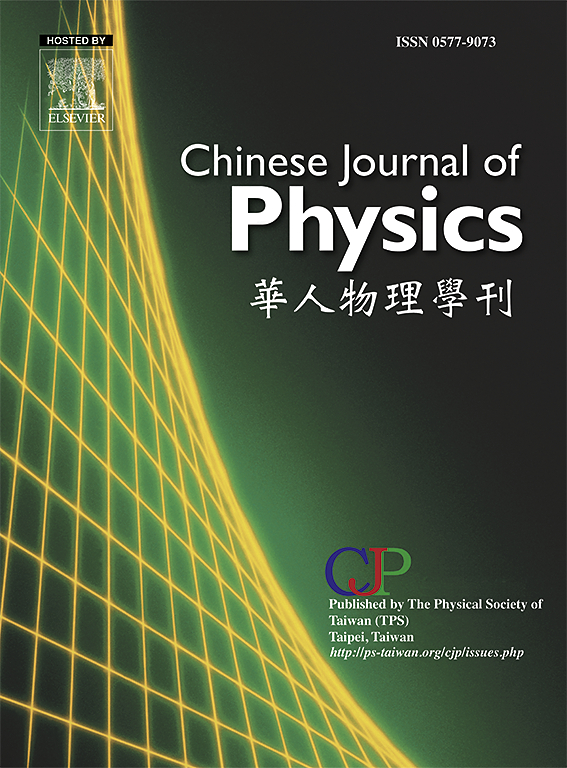基于qgan的混合量子经典神经网络数据增强
IF 4.6
2区 物理与天体物理
Q1 PHYSICS, MULTIDISCIPLINARY
引用次数: 0
摘要
混合量子-经典神经网络(HQNNs)在复杂特征空间中具有比经典神经网络更快的训练收敛和更高的精度的潜力。然而,由于在生成量子数据和数据稀缺性恶化方面的挑战,量子机器学习的数据增强尚未得到充分探索。为了解决这个问题,我们将量子生成对抗网络(qgan)与hqnn集成在一起,并提出了两种策略:一种是改进数据处理和分类的通用方法,另一种是基于hqnn在特定类别上的性能生成样本的定制策略。在MNIST数据集上的仿真实验表明,QGAN优于传统的数据增强方法(随机旋转、平移、对比度调整)和经典gan。与深度卷积GAN相比,QGAN在可训练参数减少50%的情况下取得了相似的性能,平衡了效率和有效性。这些结果突出了量子数据增强技术的优势,为罕见疾病诊断和濒危物种分类等现实应用提供了潜在的解决方案。本文章由计算机程序翻译,如有差异,请以英文原文为准。

QGAN-based data augmentation for hybrid quantum–classical neural networks
Hybrid Quantum–Classical Neural Networks (HQNNs) have the potential to achieve faster training convergence and higher accuracy than classical neural networks in complex feature spaces. However, data augmentation for quantum machine learning is underexplored due to challenges in generating quantum data and worsening data scarcity. To address this, we integrate Quantum Generative Adversarial Networks (QGANs) with HQNNs, and propose two strategies: a general approach to improve data processing and classification, and a customized strategy that generates samples based on HQNNs’ performance on specific classes. Simulation experiments on the MNIST dataset demonstrate that QGAN outperforms conventional data augmentation methods(random rotation, translation, contrast adjustment) and classical GANs. Compared to deep convolutional GAN, QGAN achieves similar performance with 50% fewer trainable parameters, balancing efficiency and effectiveness. These results highlight the advantages of quantum data augmentation techniques, offering potential solutions for real-world applications such as rare disease diagnosis and endangered species classification.
求助全文
通过发布文献求助,成功后即可免费获取论文全文。
去求助
来源期刊

Chinese Journal of Physics
物理-物理:综合
CiteScore
8.50
自引率
10.00%
发文量
361
审稿时长
44 days
期刊介绍:
The Chinese Journal of Physics publishes important advances in various branches in physics, including statistical and biophysical physics, condensed matter physics, atomic/molecular physics, optics, particle physics and nuclear physics.
The editors welcome manuscripts on:
-General Physics: Statistical and Quantum Mechanics, etc.-
Gravitation and Astrophysics-
Elementary Particles and Fields-
Nuclear Physics-
Atomic, Molecular, and Optical Physics-
Quantum Information and Quantum Computation-
Fluid Dynamics, Nonlinear Dynamics, Chaos, and Complex Networks-
Plasma and Beam Physics-
Condensed Matter: Structure, etc.-
Condensed Matter: Electronic Properties, etc.-
Polymer, Soft Matter, Biological, and Interdisciplinary Physics.
CJP publishes regular research papers, feature articles and review papers.
 求助内容:
求助内容: 应助结果提醒方式:
应助结果提醒方式:


